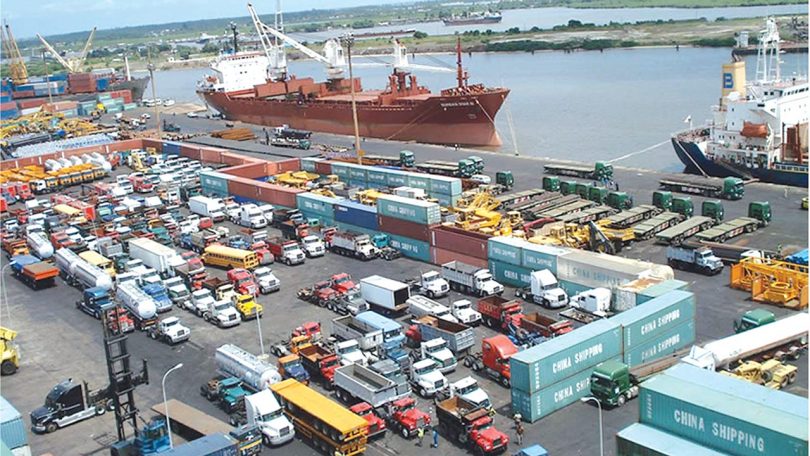In late 2017, I decided my Masters dissertation will focus on the influence of Public-Private Partnership (PPP) in Nigeria’s development, after my feasibility study, I ended up choosing Nigerian ports as a case study – the Lagos ports precisely for the research. When I rounded up my fieldwork in mid-2019, one of my several research conclusions buttressed delays at the ports, despite the concession of terminals to private operators.
Nigeria has six seaports: Apapa and Tin Can in Lagos, the Onne and Port-Harcourt ports in Rivers State, the Warri Port, and the Calabar Port. But Lagos Ports is the official designation for about 90% of Nigerian cargo, which has led to congestion of the port and slow service delivery at the port complex.
Albeit the ports generate billions of naira in revenue for the government, yet low service delivery and infrastructure deficit affect imports and exports businesses in the country.
The Service Delivery Angle
Before the concession of the port, service delivery was worse, though it has had a little boost because of digitisation of operations by the Nigerian Ports Authority (NPA), Nigerian Customs Service (NCS) and the private terminal operators.
However, importers still encounter delays during physical clearance of cargoes with private terminals; payment for excise duties with Customs takes time before approval even with Fintech based system; inspection of cargoes by Custom agents take days or weeks as they still conduct manual examination and; shipping companies are late to receive empty containers to proceed with continuous maritime businesses.
All these delays in port operations affect importers and exporters, especially those that deal in staple products.
The Financial Angle
Trade facilitation no longer exists in Nigerian ports as agencies involved in port business use official and unofficial compulsory payment on consignment to make cargo clearance cumbersome for importers and shippers. Failure to pay these charges leads to delay in cargo clearance at port areas.
During my fieldwork, I noted that the CBN fixes exchange rate policies used for port business, but the Customs’ carry out implementation for payment of duties. More often, Customs implement these FOREX policies without prior notice to stakeholders. Clearing agents usually call out the agency over its failure to sensitize and consult with them on the new policy, which usually affects total cost of clearing cargoes and general prices of goods in the market. This is another reason for cargo abandonment and delay in clearing consignment at port.
Besides, clearance of consignment, especially cars at private terminals, is plagued with controversies on storage charges which accumulate with time. Here, failure to grant waiver by terminal operators during clearance leads to further delay for importers or abandonment of cargo. The spill-over effect is why we have congestion at port areas and roads.
This financial quagmire will make some agents or importers lose business deals, if they charge higher prices or can’t meet up with demand for their products because of an incessant increase in clearance fees.
The Infrastructure Angle
Lagos port roads have become an eyesore for port users. While I collated questionnaires administered to truck drivers, I discovered that a high percentage of them have been on the queue leading to port entrance for over a week. This affects businesses for shippers, importers and exporters, if their cargoes have stipulated deadlines.
Equipment deficiency is another cause of delay. The NPA has severally been called out for: abandoning collapsed quay aprons or cable ditch at terminals; the absence of scanner used by Customs to inspect cargoes, leading to manual inspection of cargoes and; the inability to improve on other port infrastructure. All these accumulates to cause delay in cargo clearance and other port business.
The Way Forward?
Though government has activated the shifting of port business from Lagos in order to decongest the port, but there is a need to restructure charges and FOREX policy in maritime business; service or replace faulty equipment; rehabilitate more access roads leading to major port areas; invest in dry port areas to manage congestion and; hasten up construction of railway line leading to port areas.
Some of these solutions are short-term, and they may not solve the underutilisation experienced in Nigerian ports but would definitely help to cut down the delays encountered by exporters and importers during port operations, and lead to overall improvement and productivity in the maritime industry.
This article conveys the views of the author and not necessarily that of Ominira Initiative.


